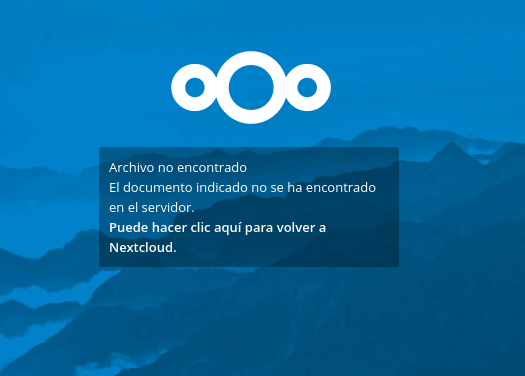https://----------.com/index.php/login

SO: Trisquel (Debian Version 7)
NGINX
MariaDB
PHP5
nextcloud.conf:
#upstream php-handler {
#server unix:/var/run/php5-fpm/nextcloud.sock;
#}
server {
## Escucha en el puerto 80 (HTTP)
listen 80;
## Raíz donde se encuentra la página Web
root /srv/www/nextcloud;
## Orden de prioridad de los archivos index
index index.php index.html index.htm;
server_name nextcloud.--------.com;
access_log /var/log/nginx/nextcloud.log;
location / {
try_files $uri $uri/ =404;
}
location ~ \.php$ {
root /srv/www/nextcloud;
try_files $uri =404;
fastcgi_split_path_info ^(.+\.php)(/.+)$;
fastcgi_pass unix:/var/run/php5-fpm/nextcloud.sock;
fastcgi_index index.php;
fastcgi_param PATH_TRANSLATED $document_root$fastcgi_script_name;
include fastcgi_params;
}
}
#HTTPS
server {
## Escucha en el puerto 443 (HTTPS)
listen 443 ssl;
## Raíz donde se encuentra la página Web
root /srv/www/nextcloud;
## set max upload size
client_max_body_size 10G;
fastcgi_buffers 64 4K;
## Orden de prioridad de los archivos index
index index.php index.html index.htm;
server_name nextcloud.-------.com;
access_log /var/log/nginx/nextcloud.log;
location / {
rewrite ^/remote/(.*) /remote.php last;
rewrite ^(/core/doc/[^\/]+/)$ $1/index.html;
try_files $uri $uri/ =404;
}
## Certificados
ssl_certificate /etc/letsencrypt/live/nextcloud.---------.com/fullchain.pem;
ssl_certificate_key /etc/letsencrypt/live/nextcloud.----------.com/privkey.pem;
# Disable gzip to avoid the removal of the ETag header
gzip off;
# Uncomment if your server is build with the ngx_pagespeed module
# This module is currently not supported.
#pagespeed off;
error_page 403 /core/templates/403.php;
error_page 404 /core/templates/404.php;
rewrite ^/.well-known/carddav /remote.php/dav/ permanent;
rewrite ^/.well-known/caldav /remote.php/dav/ permanent;
# The following 2 rules are only needed for the user_webfinger app.
# Uncomment it if you're planning to use this app.
#rewrite ^/.well-known/host-meta /public.php?service=host-meta last;
#rewrite ^/.well-known/host-meta.json /public.php?service=host-meta-json last;
location = /robots.txt {
allow all;
log_not_found off;
access_log off;
}
location ~ ^/(build|tests|config|lib|3rdparty|templates|data)/ {
deny all;
}
location ~ ^/(?:\.|autotest|occ|issue|indie|db_|console) {
deny all;
}
#location ~ \.php(?:$|/) {
# fastcgi_split_path_info ^(.+\.php)(/.+)$;
# include fastcgi_params;
# fastcgi_param SCRIPT_FILENAME $document_root$fastcgi_script_name;
# fastcgi_param PATH_INFO $fastcgi_path_info;
# fastcgi_param HTTPS on;
# fastcgi_param modHeadersAvailable true; #Avoid sending the security headers twice
# fastcgi_pass php-handler;
# fastcgi_intercept_errors on;
#}
location ~ .php$ {
location ~ \.php(?:$|/) {
root /srv/www/nextcloud;
try_files $uri =404;
fastcgi_split_path_info ^(.+\.php)(/.+)$;
fastcgi_pass unix:/var/run/php5-fpm/nc.sock;
fastcgi_index index.php;
fastcgi_param PATH_TRANSLATED $document_root$fastcgi_script_name;
include fastcgi_params;
}
# Adding the cache control header for js and css files
# Make sure it is BELOW the location ~ \.php(?:$|/) { block
location ~* \.(?:css|js)$ {
add_header Cache-Control "public, max-age=7200";
# Add headers to serve security related headers
add_header Strict-Transport-Security "max-age=15768000; includeSubDomains; preload;";
add_header X-Content-Type-Options nosniff;
add_header X-Frame-Options "SAMEORIGIN";
add_header X-XSS-Protection "1; mode=block";
add_header X-Robots-Tag none;
add_header X-Download-Options noopen;
add_header X-Permitted-Cross-Domain-Policies none;
# Optional: Don't log access to assets
access_log off;
}
# Optional: Don't log access to other assets
location ~* \.(?:jpg|jpeg|gif|bmp|ico|png|swf)$ {
access_log off;
}
}
What the problem???